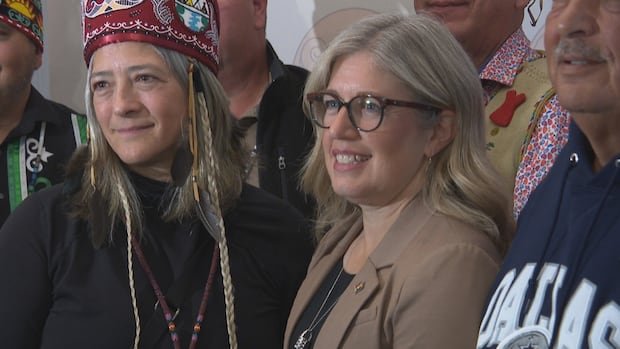Fourteen First Nations in New Brunswick achieved a significant victory on Thursday by signing new tax-sharing agreements, four years after the provincial government unilaterally terminated the original agreements. Chief Gabriel Atwin of Bilijk First Nation emphasized the importance of First Nations having their own revenue sources to support various community needs like infrastructure, youth activities, and services for seniors.
The new agreements, announced at events in Fredericton and Metepenagiag First Nation, closely mirror the previous deals that were canceled in 2021. Wolastoqey First Nations will retain 95% of the initial $10 million in tax revenue from tobacco, gas, and the provincial portion of HST on their reserve lands. They will also keep 70% of revenues between $10 million and $16 million, with any amount exceeding that to be split evenly with the province.
Similarly, the Mi’kmaw agreement allows communities to keep 70% of revenues between $10 million and $18 million. The agreements are expected to result in a $50 million hit for the province in the first year, according to Premier Susan Holt. However, Madawaska Chief Patricia Bernard emphasized that the sharing of revenue should not be viewed as a loss for the province but rather as a collaborative effort benefiting both parties.
The cancellation of the original agreements in 2021 by former premier Blaine Higgs was deemed unsustainable and unfair, leading to the exploration of new funding agreements with individual First Nations. The revenue generated through the previous agreements supported a range of services within the communities, including youth programs, elder support, and housing initiatives.
The signing of the new tax-sharing agreements marks a positive step towards cooperation between the government and First Nations, following a period of strained relations during the previous administration. Chief Terry Richardson of Pabineau First Nation highlighted the challenges faced due to the loss of revenue in recent years.
Premier Holt expressed optimism about future collaborations, mentioning discussions on sharing revenue from natural resource extraction industries. The agreements may also have implications for the ongoing Wolastoqey title claim to a significant portion of the province’s landmass, emphasizing the importance of negotiation over litigation as a means of resolving such matters. The agreements are seen as a foundation for building stronger relationships and fostering continued dialogue between the government and First Nations communities.


